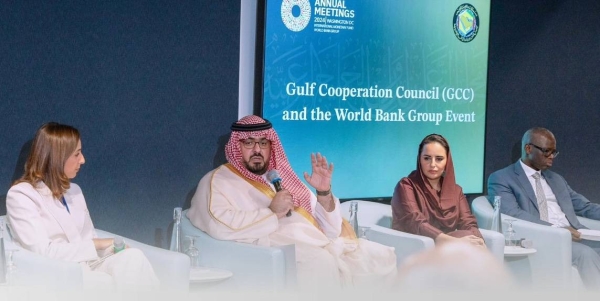Minister of Economy and Planning Faisal Alibrahim recently took part in a panel discussion focusing on the role of human capital in economic growth at a Gulf Cooperation Council (GCC) and World Bank Group (WBG) event. During the discussion, Alibrahim highlighted the efforts being made as part of Saudi Vision 2030 to redefine approaches to health, education, social protection, and gender equality in order to build long-term resilience and global competitiveness. Specifically, he spoke about education reforms aimed at future-proofing the workforce by promoting skills-based learning and innovation in STEM fields to position Saudi Arabia as a leader in technology and engineering.
In the health sector, Alibrahim discussed plans to expand infrastructure, integrate digital health solutions, and prioritize preventive care to improve national wellness and healthcare efficiency. As the future of work evolves with automation and artificial intelligence, he emphasized the need for targeted reskilling initiatives and strong partnerships with the private sector to navigate these shifts successfully. Additionally, Alibrahim stressed the importance of small and medium enterprises (SMEs) as key drivers of economic growth and detailed the efforts being made to foster a culture of innovation and entrepreneurship to support sustainable development in the Kingdom.
Saudi Vision 2030 is a transformative initiative that aims to position the Kingdom as a global leader in various fields. By focusing on human capital development, particularly in education, health, and workforce readiness, Saudi Arabia is making strategic investments in the future. The emphasis on skills-based learning and innovation in STEM fields reflects a commitment to staying ahead of the curve in technology and engineering. With a strong focus on preventive care and digital health solutions, the Kingdom is working towards improving national wellness and healthcare efficiency to meet the needs of a rapidly evolving society.
As advancements in automation and artificial intelligence reshape the future of work, Saudi Arabia is preparing by implementing targeted reskilling initiatives and forging partnerships with the private sector. The goal is to ensure that the workforce remains competitive and adaptable in a rapidly changing economic landscape. By recognizing the importance of SMEs as engines of economic growth, the Kingdom is actively supporting a culture of innovation and entrepreneurship. These efforts are crucial for driving sustainable development and fostering a vibrant business environment that can thrive in the global marketplace.
The discussion at the GCC and WBG event highlighted the holistic approach being taken by Saudi Vision 2030 to build long-term resilience and competitiveness. By addressing key areas such as education, health, and workforce development, the Kingdom is laying the foundation for a prosperous future. Through strategic investments in human capital and a commitment to innovation, Saudi Arabia is positioning itself as a leading player in technology, engineering, and other key industries. With a focus on fostering entrepreneurship and supporting SMEs, the Kingdom is creating an environment that encourages sustainable growth and economic diversification.































